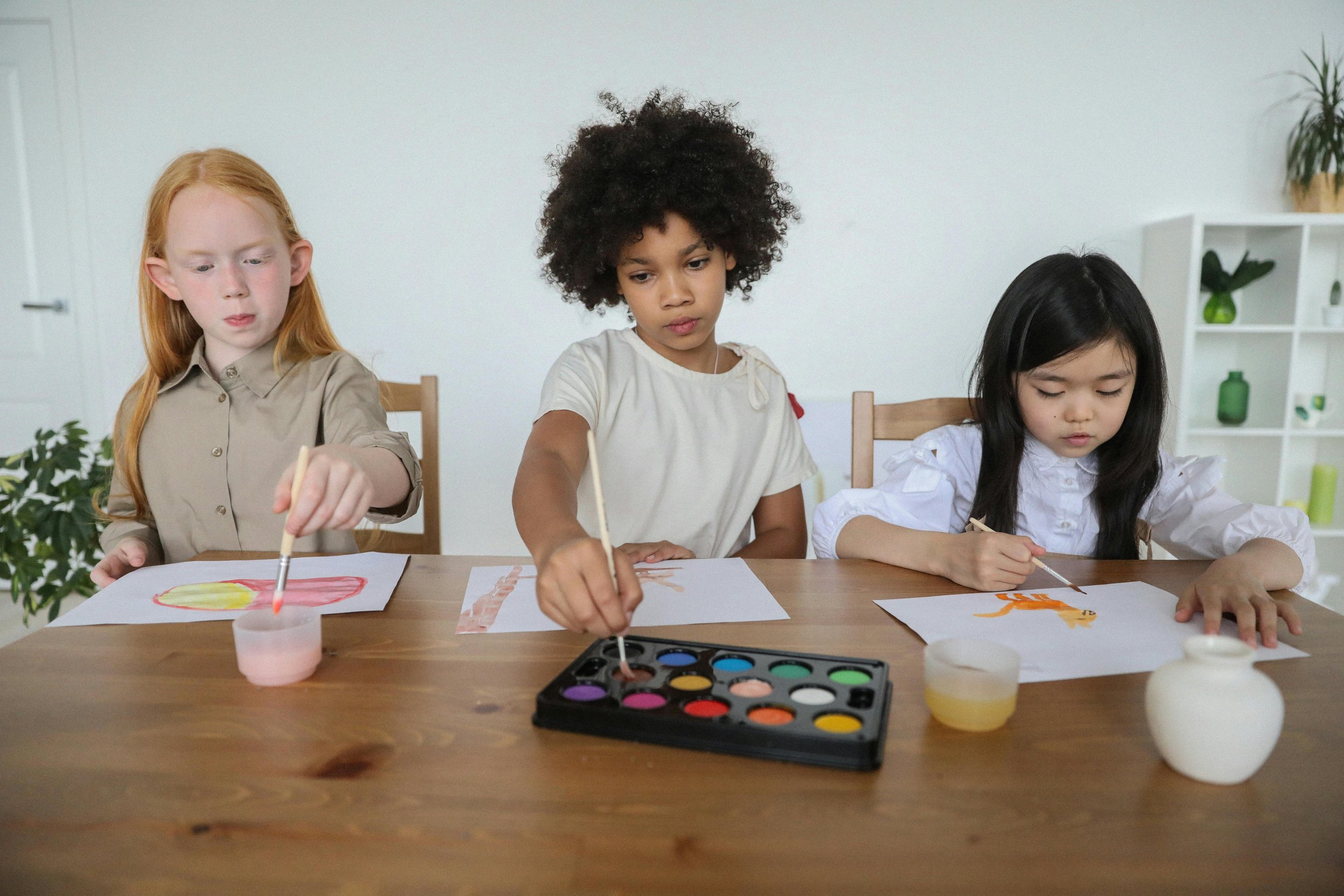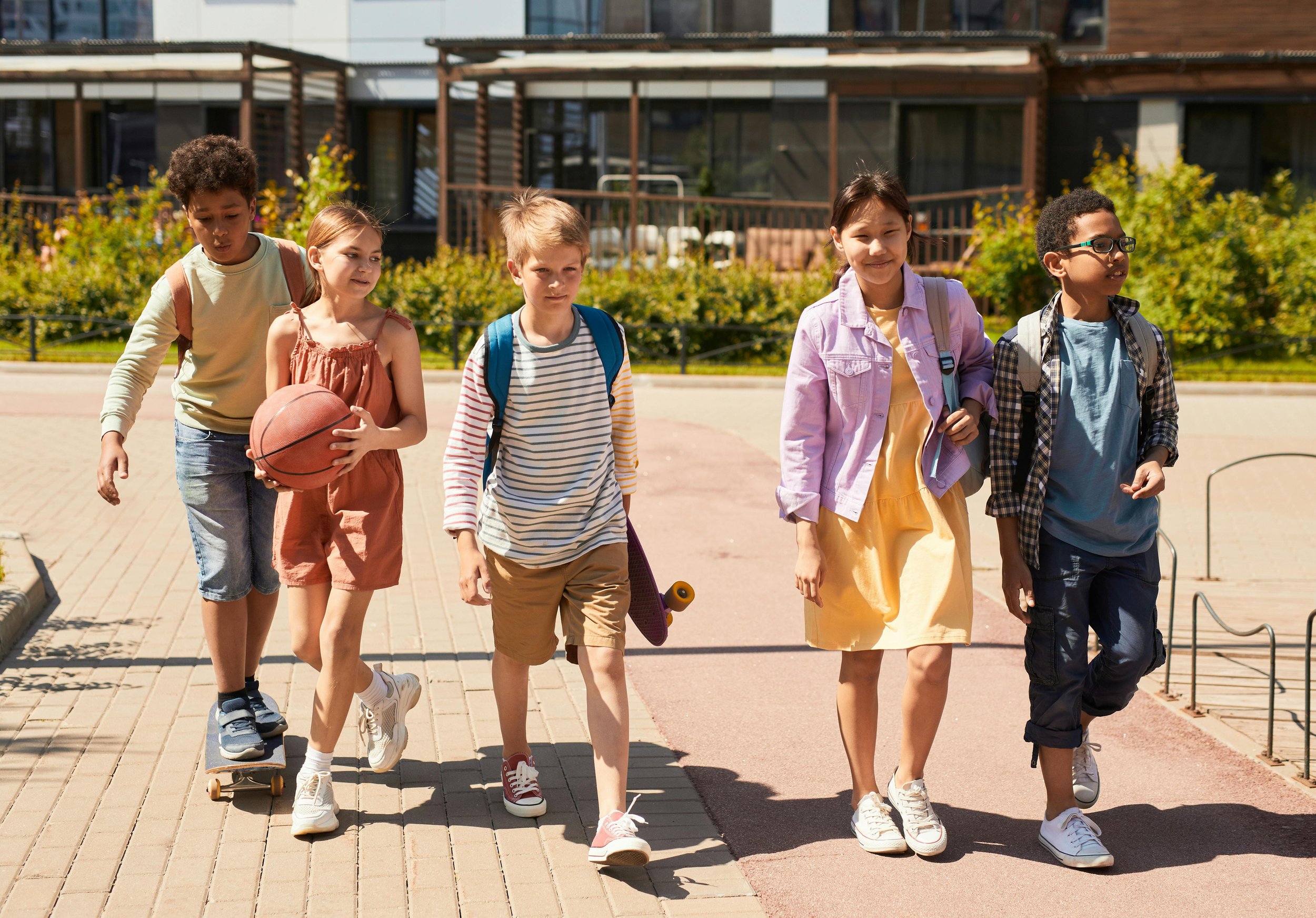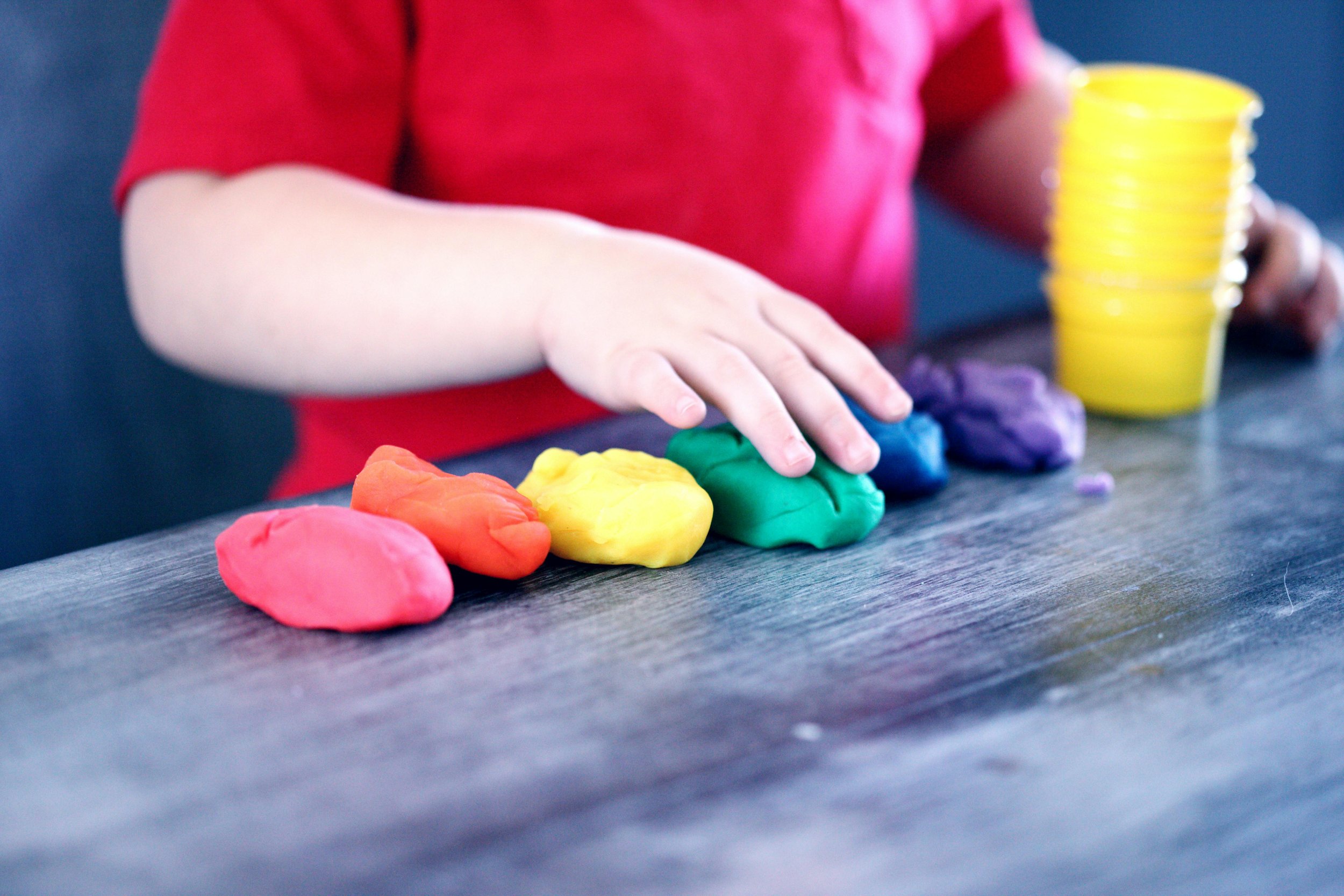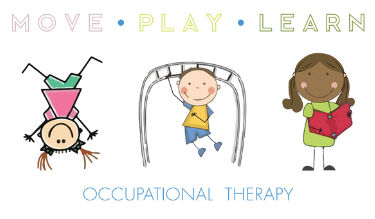
KEY AREAS OF SUPPORT
-

Gross Motor Skills
Gross motor skills refer to the ability to control large muscle groups, including the arms, legs, and torso, to perform physical actions like walking, running, jumping, and throwing.
Developing gross motor skills is essential for children to, move around safely and efficiently, engage in physical play and sports, develop balance and coordination, build overall physical fitness and strength and enhance cognitive development and focus.
Some fun and engaging activities to improve gross motor skills in children include:
Running, jogging, and walking
Jumping, hopping, and skipping
Throwing and catching balls or beanbags
Climbing and crawling (e.g., on playground equipment or obstacle courses)
Balancing and walking on balance beams or lines
Dancing and movement games (e.g., Simon Says, Red Light Green Light)
Riding bikes, scooters, or skateboards
Swimming and water play
Group sports and games (e.g., soccer, basketball, tag)
-

Social Skills
Social skills are essential for children to develop and maintain relationships, communicate effectively, and navigate social situations.
Role-Playing: Practice social scenarios like sharing and taking turns through role-playing.
Social Stories: Use stories to teach empathy, perspective-taking, and understanding social cues.
Video Modeling: Demonstrate appropriate behavior through videos of social interactions.
Peer Mentoring: Pair children with peers who can model and support social skills development.
Encourage Playdates: Arrange playdates with friends and family to practice social skills in natural settings.
Teach Emotional Intelligence: Help children recognise, understand, and manage their emotions.
Foster Empathy: Encourage children to consider others' feelings and perspectives.
Some specific social skills to focus on include:
- Initiation and maintenance of conversations
- Active listening and eye contact
- Cooperation and teamwork
- Conflict resolution and problem-solving
- Emotional regulation and empathy
- Understanding social cues and nonverbal communication
-

Emotions
Fine motor skills encompass the ability to perform precise movements with the hands, fingers, and wrists. For children, the development of fine motor skills is paramount in various aspects of daily life such as writing, typing and drawing, using small objects (e.g., buttons, zippers, utensils), dressing and grooming, feeding and eating, engaging in play and leisure activities (e.g., puzzles, building blocks)
To enhance fine motor skills in children, a range of enjoyable activities can be incorporated:
Playdough play
Solving puzzles and brain teasers
Colouring and drawing with different tools (e.g., crayons, markers, paint)
Stacking and nesting objects (e.g., blocks, cups, rings)
Using tweezers or tongs to handle small objects
Lacing and threading activities
Cutting with scissors
Building with construction toys (e.g., Legos, magnetic tiles)
Engaging in pretend play with kitchen utensils and food
Exploring sensory bin activities (e.g., rice, beans, sand)
-

Self Care
Occupational Therapists (OTs) play a crucial role in children's development by helping them master daily tasks like dressing, grooming, feeding, and toileting independently.
They teach techniques for emotional regulation, such as deep breathing and visualisation, and aid in sensory integration to reduce overwhelm and promote calmness.
Additionally, OTs guide children in developing social skills like communication and sharing, encourage engagement in play for relaxation, and assist in building self-awareness and confidence.
They also teach coping skills for problem-solving and adaptability and support in establishing routines for independence at home and school.
Fun self-care activities for children include arts and crafts, music, yoga, cooking, outdoor play, journaling, and building play

working together to create a bright future
Schedule A SESSION
FAQs
What is Occupational Therapy and how can it help my child?
Occupational Therapy (OT) is like a superpower for kids—it helps them do all the awesome things they want and need to do every day!
Whether it's playing, learning, or even just getting dressed, OT can make these activities easier and more fun.
For kids, OT can be like having a special coach who helps them with things like moving, thinking, and feeling, so they can shine bright like the stars they are!
How do I know if my child needs Occupational Therapy?
If your child could use a little extra support with things like playing, learning, or even just being comfortable in their own skin, OT could be a big help!
Look for signs like struggling with writing or cutting, feeling overwhelmed by noises or textures, or having trouble paying attention or making friends. If you notice any of these, it might be time to give OT a try!
What happens before and during the initial session?
Before your child's first session, we'll chat about all the amazing things they love to do, and any challenges they might be facing. Then, during the session, we'll dive into all sorts of fun activities to see what makes your child shine brightest. From playing games to trying out cool new toys, we'll work together to figure out the best ways to help your child reach for the stars!
What happens during OT sessions?
OT sessions are like mini-adventures filled with laughter, learning, and lots of high-fives! Your child will get to try out all sorts of fun activities designed to help them conquer their goals and feel like superheroes. Whether it's swinging on monkey bars, painting masterpieces, or even just taking deep breaths, every session is a chance for your child to show off their amazing skills and discover new ones!
What kind of things can you help with?
We're here to help with all the big challenges and little victories your child faces every day! From wrangling those tricky zippers to making new friends on the playground, there's no challenge too big or too small for us to tackle together. Whether your child has trouble with motor skills, sensory stuff, learning, or just feeling confident and happy, we've got their back every step of the way!

